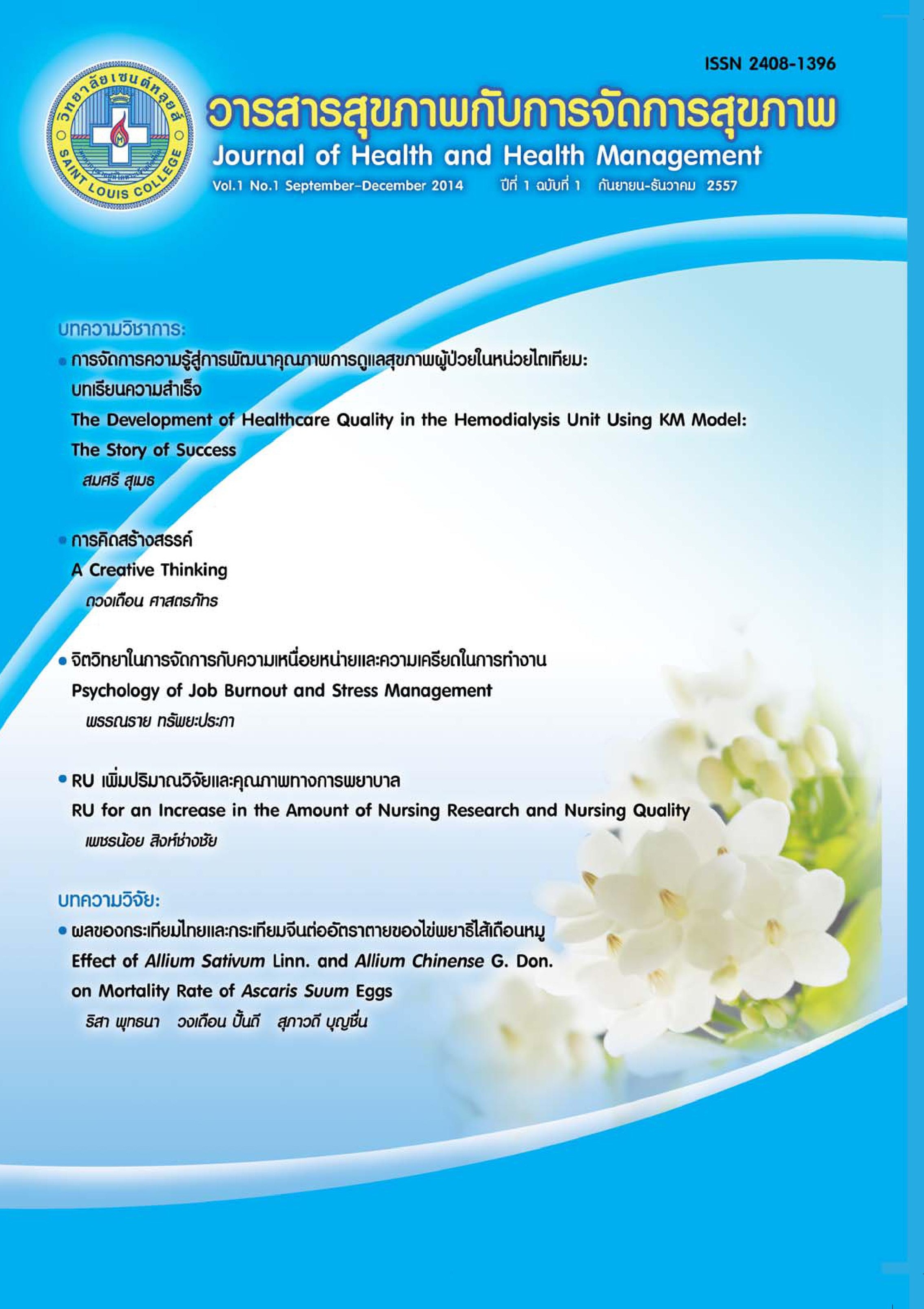The Development of Healthcare Quality in the Hemodialysis Unit Using KM Model: The Story of Success
Keywords:
knowledge management, development of healthcare quality, hemodialysis unit, the story of successAbstract
Knowledge management is a principal instrument for the development of healthcare quality, especially for chronic renal failure patients undergoing hemodialysis. The process of knowledge management involves all healthcare stakeholders, each of whom must understand his/her role and the rules of engagement. Initially, all participants must attend knowledge-related activities and practise recounting events for knowledge sharing and mutual learning purposes. The leader of the knowledge sharing and mutual learning activities should be able to create a friendly atmosphere that encourages all the participants to share their experience of good healthcare practices.
This paper presents chronic renal failure patients’ experience with the process of hemodialysis they underwent at a private hospital. This study was conducted over a period of six months, during which the knowledge management programme was implemented. After that, the programme was evaluated for its effectiveness. The study showed significant improvement in the patients’ quality of life, and a significant increase in both the patients’ and the healthcare providers’ satisfaction with the healthcare process, compared with before the implementation of the knowledge management programme. In addition, this study identified factors of success and offered recommendations based on the implemented programme.
References
ณรงค์ สหเมธาพัฒน์. (2557ก, 9 มีนาคม). เผยสถานการณ์ โรคไตในไทย คาดป่วยไตเรื้อรังแล้ว 8 ล้านคน!. ไทยรัฐออนไลน์. สืบค้นจาก http://m.thairath. co.th/content/408650
ณรงค์ สหเมธาพัฒน์. (2557ข, 12 มีนาคม). สธ. เตือนผู้ป่วย เบาหวาน-ความดันโลหิตสูงเสี่ยงไตวายเร็วขึ้น. ไทยรัฐออนไลน์. สืบค้นจาก http://m.thairath. co.th/content/409389
วิจารณ์ พาณิช. (2549). การจัดการความรู้ฉบับนัก ปฏิบัติ. กรุงเทพฯ: สำนักพิมพ์สุขใจ.
บุญดี บุญญากิจ, นงลักษณ์ ประสบสุขโชคชัย, ดิสพงค์ พรชนกนาถ, และปรียวรรณ กรรณล้วน. (2550). เส้นทางสู่ CoP สไตล์ศิริราช. กรุงเทพ: บริษัท จิรวัฒน์ เอ็กซ์เพรส จำกัด
สภาการพยาบาล. (2557). สิทธิของผู้ป่วยและจรรยาบรรณ แห่งวิชาชีพการพยาบาล. สืบค้นจาก http:// www.tnc.or.th/law/page-5.html
Boudreau, J. E., & Dube, A. (2014). Quality of life in end stage renal disease: A concept analysis. The CANNT Journal, 24, 12-20.
Gerogianni, K., Babatsikou, F.P. (2013). Identification of stress in chronic hemodialysis. Health Science Journal, 7(2), 169-176.
Pelletier-Hibbert, M., & Sohi, P. (2011). Sources of uncertainty and coping strategies used by family members of individuals living with end stage renal disease. Nephrology Nursing Journal, 28(4), 411-419.
Severinsson, E. (2012). Knowledge gaps in nursing leadership-focusing on health care. Journal of Nursing Management, 20, 709-711.
Sumet, S., Suwannapong, N., Howteerakul, N., & Thammarat, C. (2012). Knowledge management model for quality improvement in the hemodialysis unit of a non-profit private hospital, Bangkok, Thailand. Leadership in Health Services, 25, 306-317.
Wener, E.R., McDermott, E., & Synder, W.M. (2002). Cultivating communities of practice. Boston: Harvard Business School Press.




